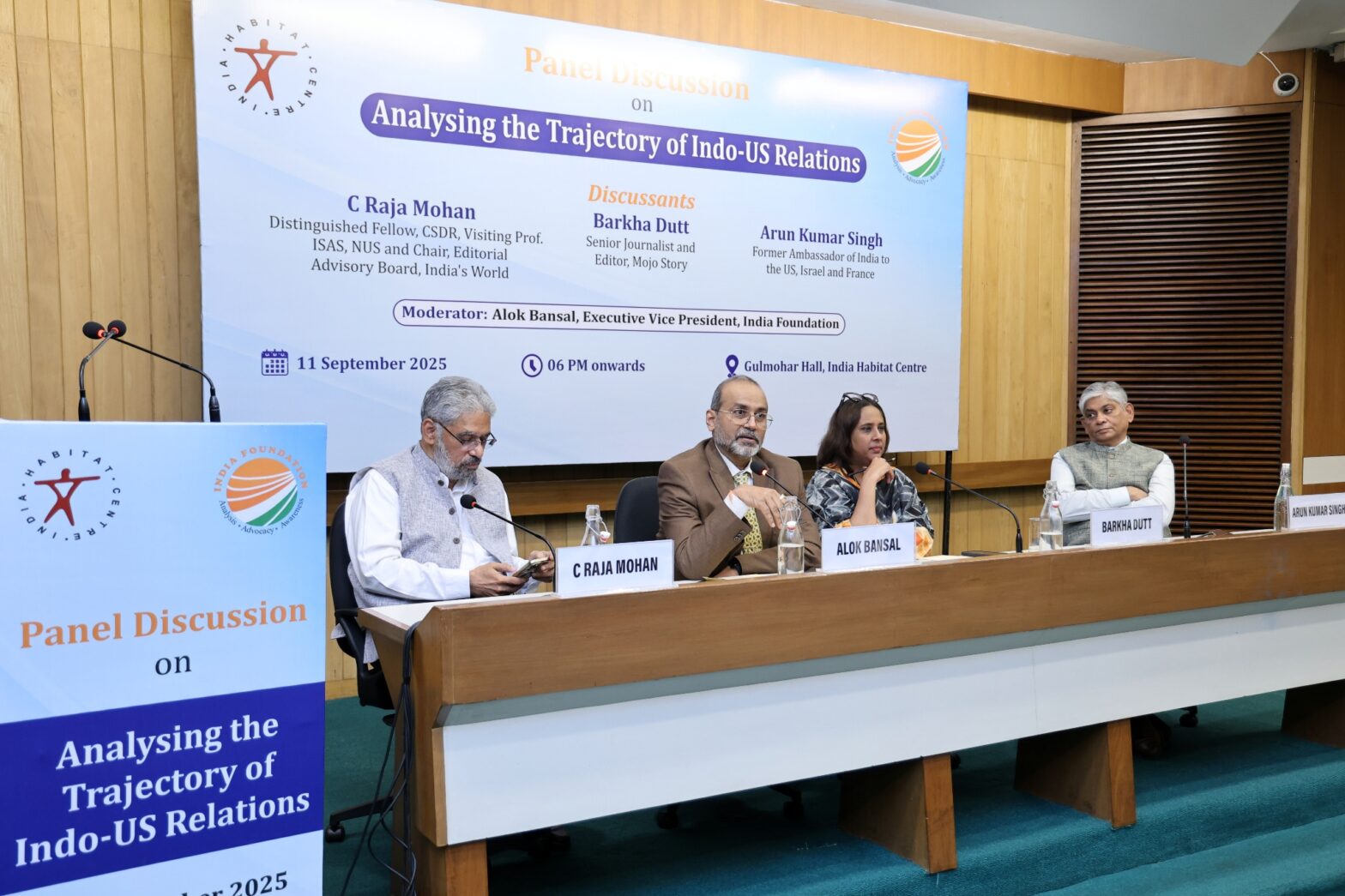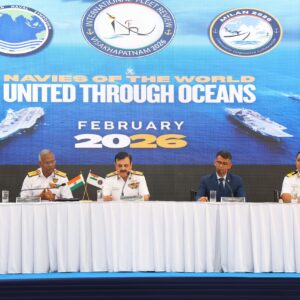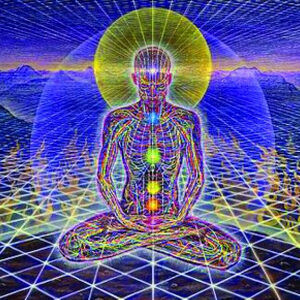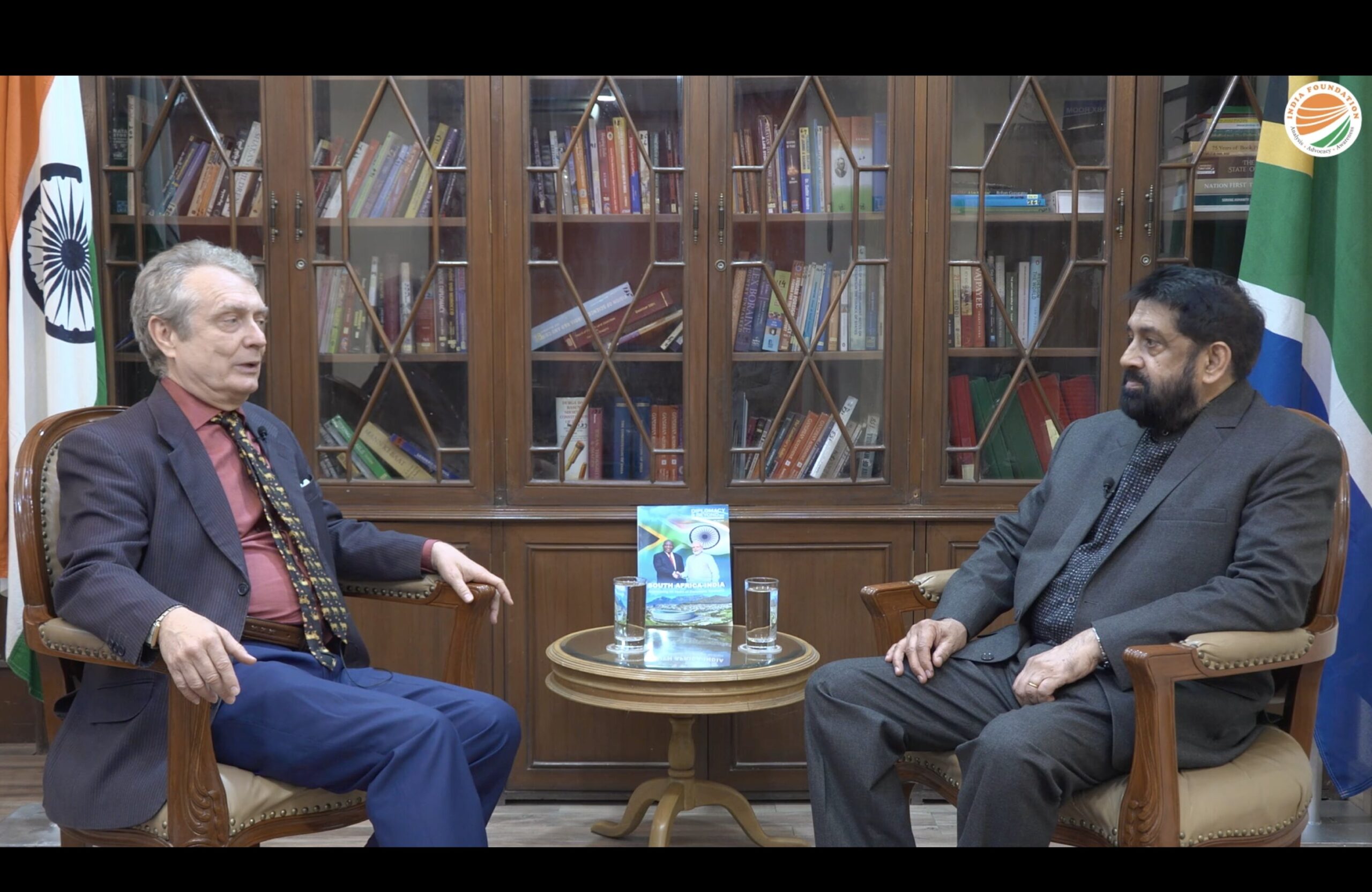India Foundation, in collaboration with the India Habitat Centre, organised a panel discussion on ‘Analysing the Trajectory of Indo-US Relations’ on 11 September 2025 at India Habitat Centre, New Delhi. The session brought together distinguished experts like Prof C. Raja Mohan, Distinguished Fellow, CSDR; Visiting Professor, ISAS, NUS; and Chair, Editorial Advisory Board, India’s World; Ms. Barkha Dutt, Senior Journalist and Editor, Mojo Story; and Shri Arun Kumar Singh, Former Ambassador of India to the United States, Israel, and France. The discussion was moderated by Captain Alok Bansal, Executive Vice President, India Foundation. The panel deliberated on the evolving contours of the Indo-US partnership, focusing on opportunities, constraints, challenges, and possible trajectories for the future.
Prof C. Raja Mohan opened the discussion by questioning the pace at which major powers recalibrate their relationships. He highlighted the robust $200 billion bilateral trade ties between India and the United States, observing that “trade issues are serious although negotiable.” He underlined that traditional flashpoints such as Jammu & Kashmir, nuclear weapons, and Pakistan have receded in salience, while trade has emerged as the central issue. Stressing that diplomatic engagement alone cannot resolve trade frictions, he called for self-reflective economic reforms within India, adding: “Relationships will continue to change. We need to adapt and analyse them.”
Ms. Barkha Dutt offered a perspective on America’s internal polarisation, remarking that political violence has been historically ingrained in its society. She argued that the United States today appears to be “dissembling and diminishing.” Noting India’s delicate balancing act, she stated: “We are faced with a deeply opaque China and a deeply volatile United States. India seems to be walking a tightrope.” She added that for the common citizen, Indo-US relations are less about technical trade negotiations and more about sovereignty and autonomy—about not being bullied.
Amb Arun Kumar Singh traced the trajectory of Indo-US relations into the future, pointing out that while political leadership may be fragmented, functional cooperation between the two nations continues steadily. He acknowledged the United States’ position as the world’s leading economic power and argued that India cannot afford to neglect this relationship: “The US offers to India what Russia cannot. We have no option but to build this relationship.” He cautioned, however, that India must hedge and diversify its partnerships to preserve autonomy, noting that over-dependence could mirror the vulnerabilities faced by Europe, Japan, Indonesia, and Vietnam. He urged the US to build a “partnership of confidence with growing convergence.”
Captain Alok Bansal, in his concluding reflections, drew a cultural distinction between occidental societies like the US, which readily adapt to changing circumstances, and oriental societies like India, which are more rooted in sentiment and slower to change. He highlighted that if, even in the aftermath of 9/11, trade rather than geopolitics or security remains a key theme in India-US discussions, it demonstrates the centrality of economic issues. He further observed that America’s real leverage over India lies not in tariffs but in visa restrictions, which significantly impact people-to-people linkages.
The discussion underscored that while the Indo-US relationship is evolving amidst shifting and economic contexts, it remains indispensable for both countries. Trade has emerged as the defining axis, even as strategic, political, and cultural considerations continue to shape the engagement. The panel agreed that India must pursue reforms, balance partnerships, and assert its autonomy, while the US must strive to build a relationship grounded in confidence and convergence.





